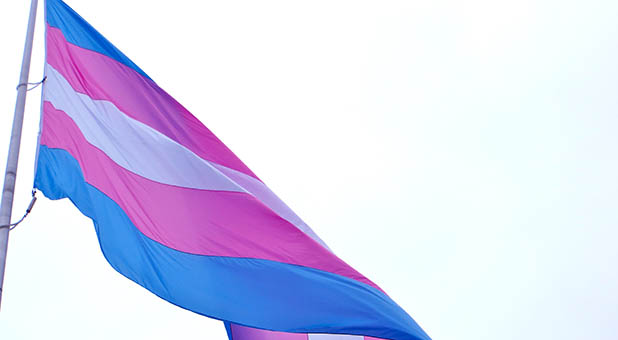This State Capital Was Celebrating Sin
By now, most people have come to recognize the rainbow-colored flag that represents the lesbian, gay, bisexual and transgendered movement.
But few probably recognize the pastel-pink and blue flag that represents transgender “rights.” That didn’t stop the City of Boston from flying the flag last week to celebrate a pair of “bathroom bills” that advanced in the Massachusetts state legislature just down the street.
Not only did the city fly the transgender “rights” flag, next to the Massachusetts and U.S. flags—in place of the city’s official flag—it held a rally in support of the pending legislation. Mayor Marty Walsh led the celebration and opened with a statement of support for the legislation:
“We’ve proven there’s nothing to fear from being inclusive. Quite the opposite. We are safer, we are stronger when everyone enjoys the same protections.
“I don’t want our state to fall behind on this … We’ve seen what happens in states when they go in the other direction: their freedoms suffer, their reputations suffer, their economy suffers.”
Walsh was joined by “Mason” Dunn, executive director of the Massachusetts Transgender Political Coalition. Dunn, a woman who has undergone hormone replacement therapy to appear male, said:
“We raise the trans pride flag for those who cannot be here today, for those who have been taken from us due to anti-trans violence. We raise the flag in support of trans rights here in Massachusetts and nationally.”
They were joined by Massachusetts Senate President Stanley Rosenberg, who is openly homosexual, and Boston City Council President Michelle Wu, who noted the city uses taxpayer funds to subsidize sex-change medical procedures for city workers and their families. They were celebrating the Massachusetts legislature’s transgender public accommodations “bathroom bill,” which moved out of committee the day before.
The bill, which has House and Senate versions, would cover not only bathrooms and locker rooms, but also all locations designated “public accommodations” under state statutes. Even if the legislation is adopted, however, it would be highly unpopular with voters—polls indicate a vast majority believe allowing men into women’s restrooms and showers isn’t safe public policy.















































